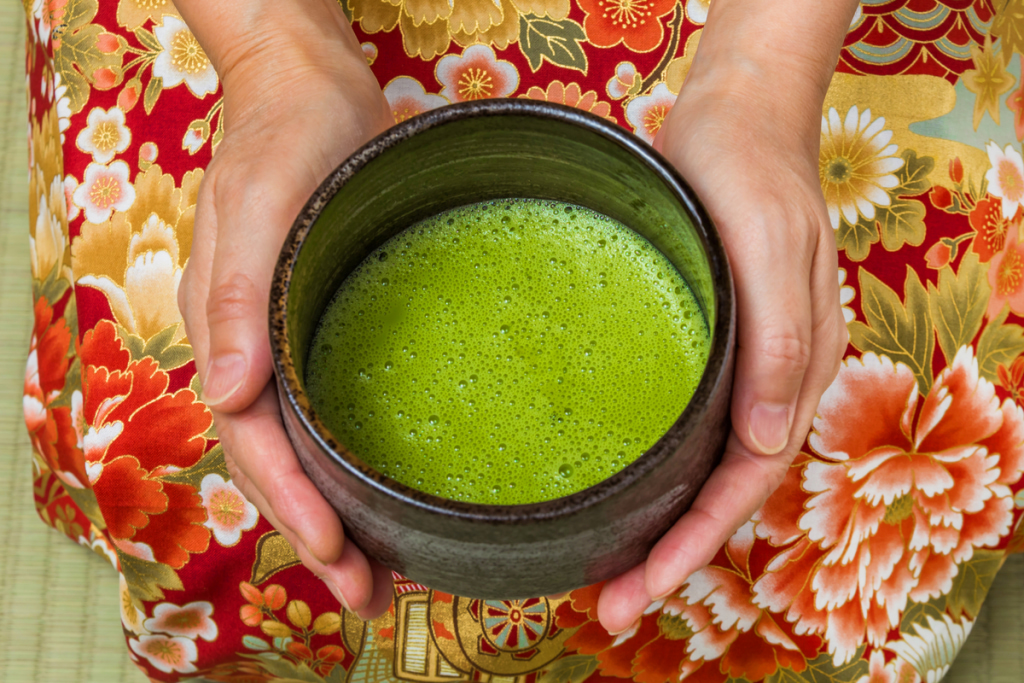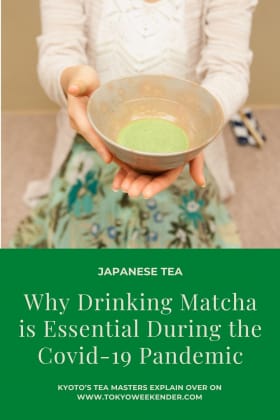Late 1945. Four pilots sit on the beach of a tiny Pacific island. Their planes are being fueled on the tarmac nearby. The tanks are not filled completely, for these young men will not be returning. They are going to fall from the sky in the name of their country.
Instead of the usual kanpai with a dish of sake, the final act of these kamikaze pilots before careening into death will be to drink tea. Before them kneels a fifth pilot, but he will not take to the skies today. He’s been deemed too valuable as a cultural resource, for his father is the master of one of Japan’s most important schools of tea. As the young tea practitioner brews matcha for his comrades, he hopes that the tea will give them the clarity and strength to persevere as they face their greatest fears.
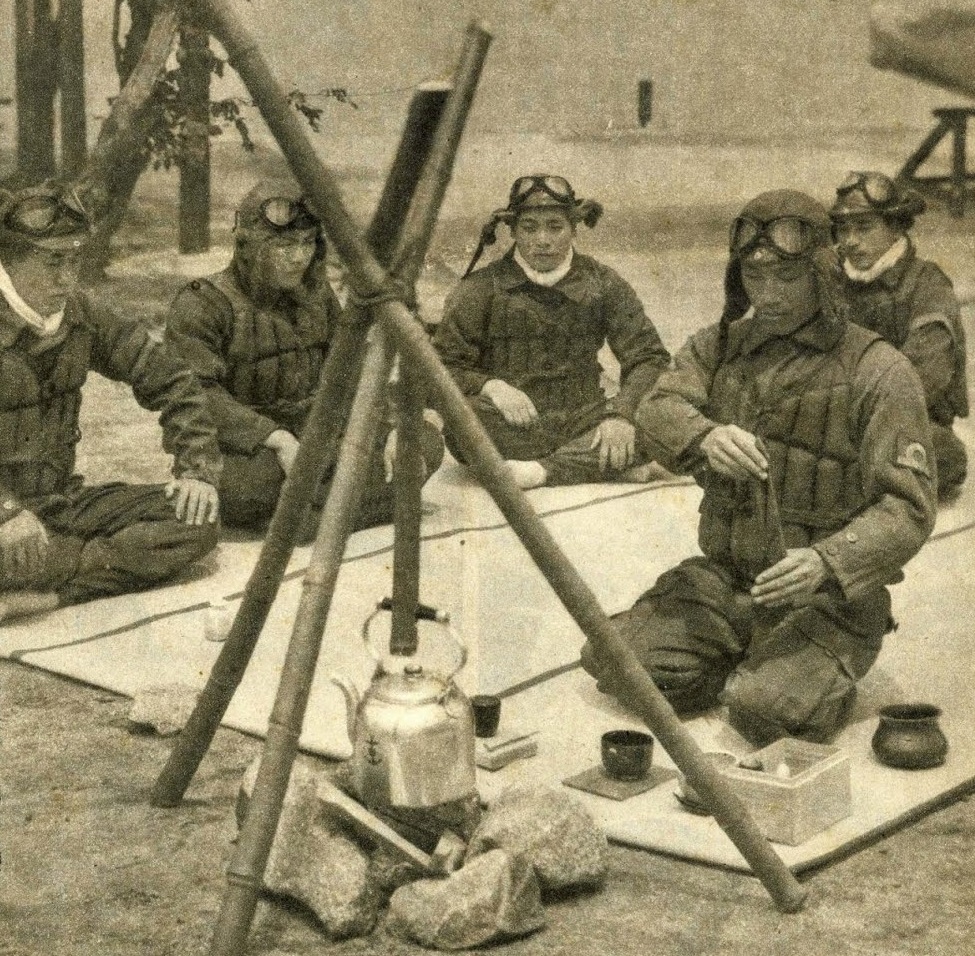
Even 75 years later, 97-year-old tea master Sen Genshitsu has rarely spoken of his time as a grounded kamikaze pilot. Seeing off 262 of his comrades into death remains a dark time in his life. However, if he was able to use matcha as a comfort even in the bleakest moments of wartime, perhaps we too can find some solace in a cup of tea as we face the challenges of Covid-19.
We’ve all heard of the health benefits of drinking matcha: antioxidants, the breaking down of old cells, an immunity boost, as well as others. These are all fine reasons to drink tea, but Belgian tea master Tyas Sosen sees an even greater benefit. Whether it be the whisking of matcha or the patient steeping of loose leaf tea, enjoyment can be found in the process of tea preparation. “It’s a moment to calm down,” he offers. “Of course it’s about the tea, but it’s about the moment, too. It’s that simple.”
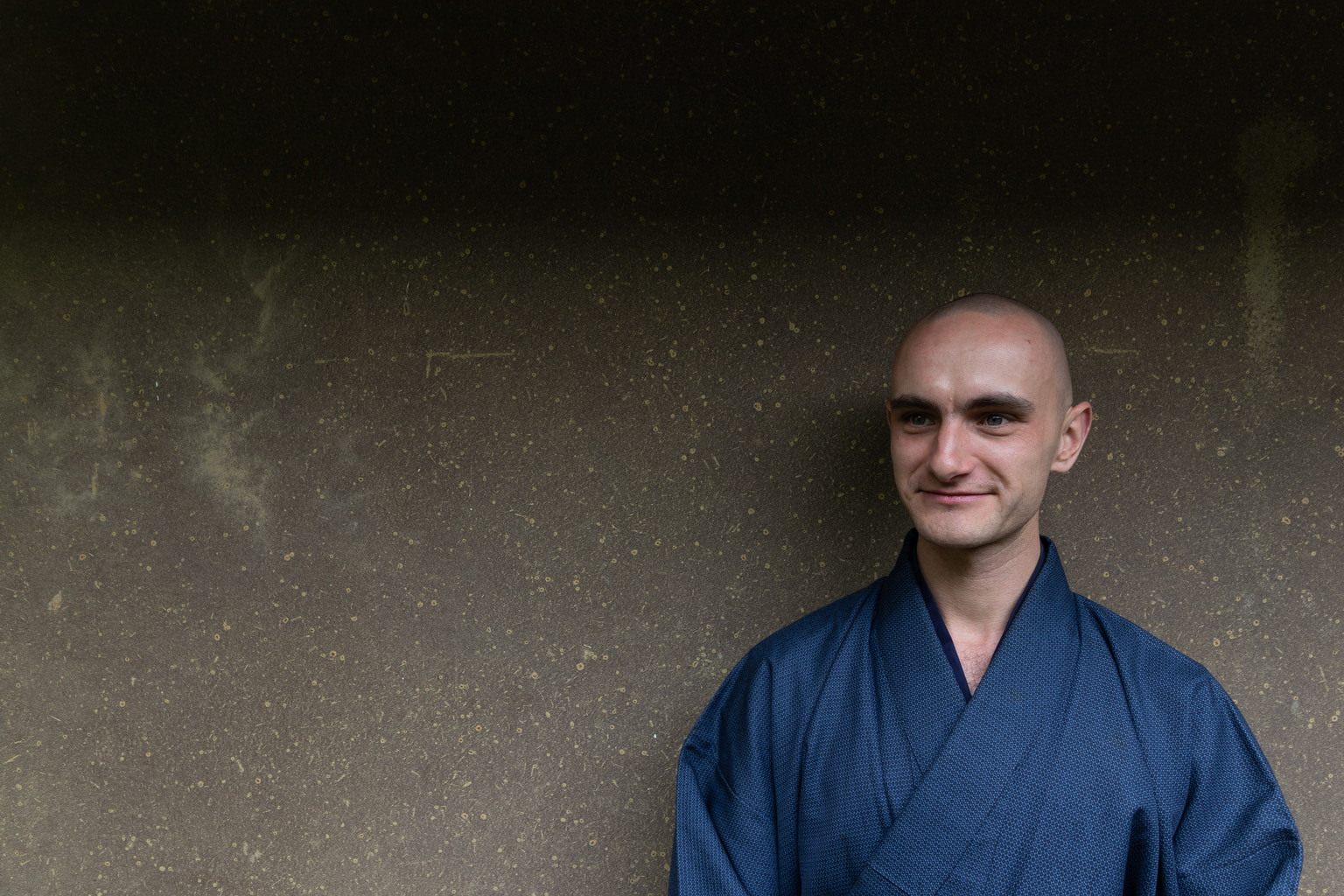
Belgian tea master Tyas Sosen. ©Cristian Kaden from Japan-Kyoto
As the youngest foreigner to become a certified tea instructor, Tyas has been sharing his message about the positivity of tea for almost 15 years. He regularly holds events and lessons in various teahouses throughout Kyoto, runs The Tea Crane online shop selling Japan’s only truly organic tea and will soon open a flagship store next to the Kyoto Imperial Palace grounds. Tyas is constantly on the move, but still finds time to enjoy a bowl of matcha each morning. “Tea is the opposite of the pandemic,” he muses. It calms us, delivers reassurance and brings us together. Even when alone, the act of making tea offers benefits. It’s the initial step of making the tea that Tyas finds more important than the drinking of it when solo. This is a moment for meditation and introspection that he urges people to savor.
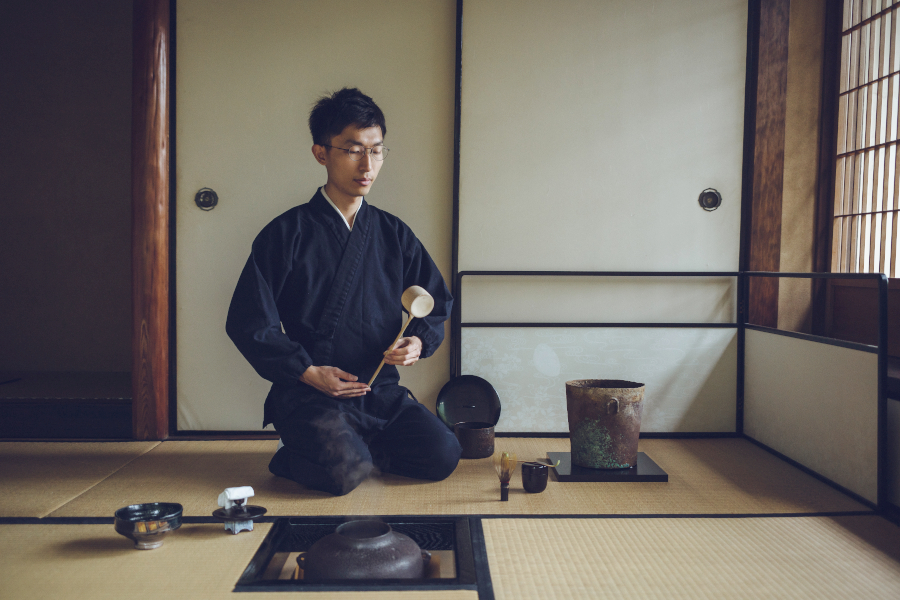
It’s actually surprisingly difficult for many of us to take a few minutes to just sit in quietude with our eyes closed while the water boils and our tea steeps. Try it. You’ll see. In an age of multitasking, Tyas wants us to take a moment to try monotasking. Even for those of us working from home or avoiding social outings, we may feel like we don’t have time for tea meditation. “Come on, you’re home all day. People, please,” jokes Tyas incredulously. “Find time. For your own sake!”
Tyas isn’t the only proponent of the benefits of habitual tea time in Kyoto. In a traditional home on the grounds of the Daitokuji Zen complex, tea practitioner Dairiku Amae lives a life governed by tradition. Each morning, he raises a bowl of matcha to his forehead and offers it to himself – and the intrinsic nature of the Buddha in each of us – before enjoying the tea’s bitter flavor. The matcha helps us focus as the day begins, he says, and also “helps us replace what we’ve lost to the anxiety of Covid-19.” This morning habit has become part of his pattern of life, and maintaining a comfortable daily rhythm is an excellent way to weather the storm of day to day uncertainty.
When guests visit him for tea, Dairiku explains the cultural history of Japanese tea. He speaks of the Sengoku Era warlords who drank tea before battle. Similar to the case of the kamikaze pilots, matcha – and the ritual surrounding it – provided samurai with “focus and discipline in the face of death,” he says. “It made them clear-minded and aware of the present.” These are ideal elements to introduce into your own daily rhythm in the modern-day as well.
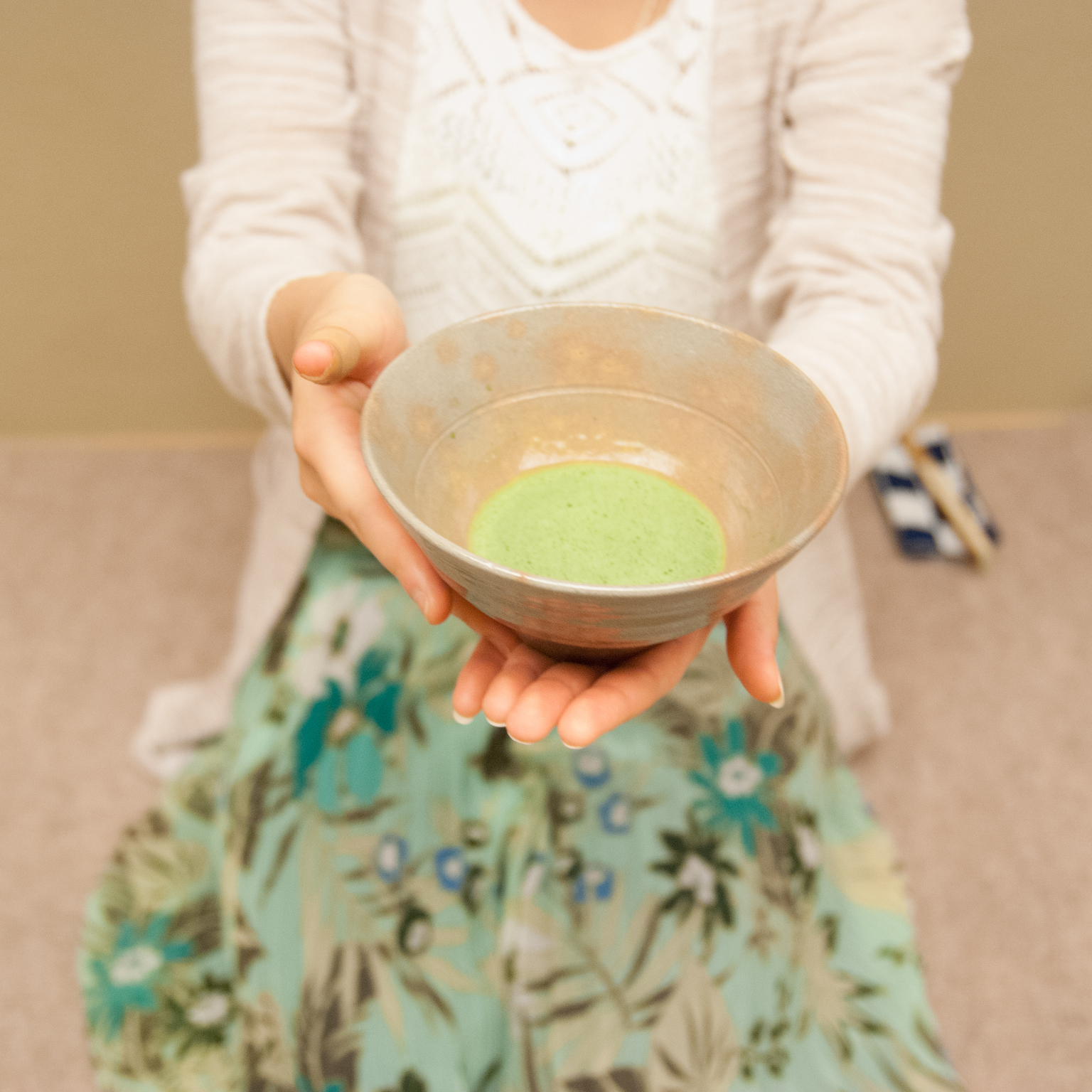
In the age of Covid-19, tea ceremonies have become a challenge for Dairiku. He’s moved his teahouse online, offering private and group Zoom courses on how to prepare and enjoy matcha. “Tea at any cost” is his new mantra. Even if you lack the correct utensils and are reduced to mixing your matcha with a fork in a coffee mug, performing the act itself as part of your daily ritual is still valid and beneficial. Tea is always worth drinking if you get something out of it – physical, emotional or otherwise. The messages of these two tea experts complement each other nicely. Tyas’ focus on the ritual of brewing as a meditation can be heightened by the daily repetition in which Dairiku finds meaning.
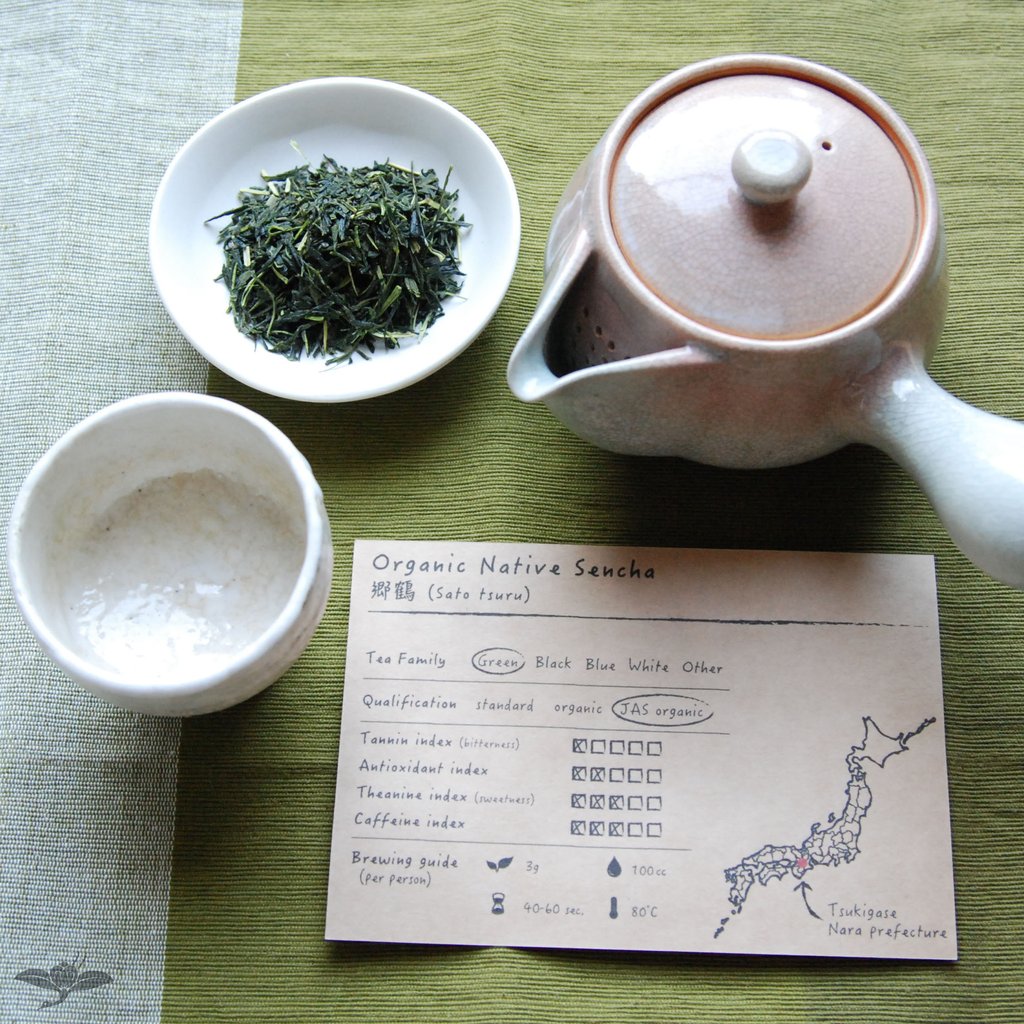
One more reason to drink tea: the industry needs our support. The tea harvest wasn’t affected by the first wave of the pandemic, but problems are on the horizon. The majority of high-quality tea sold in Japan is purchased as omiyage and seasonal gifts. With domestic travel at an all-time low and a shift away from in-person gift-giving situations, tea companies are facing a growing overstock crisis. This is a great time to introduce a bit of variety to your tea repertoire and try some new brands and blends.
Forming a new habit can be tough, but one as calming as morning tea should come easily after a short time. Enjoy a luxury that those kamikaze pilots didn’t have: the certainty that your daily tea will provide comfort and calm until your next cup.

